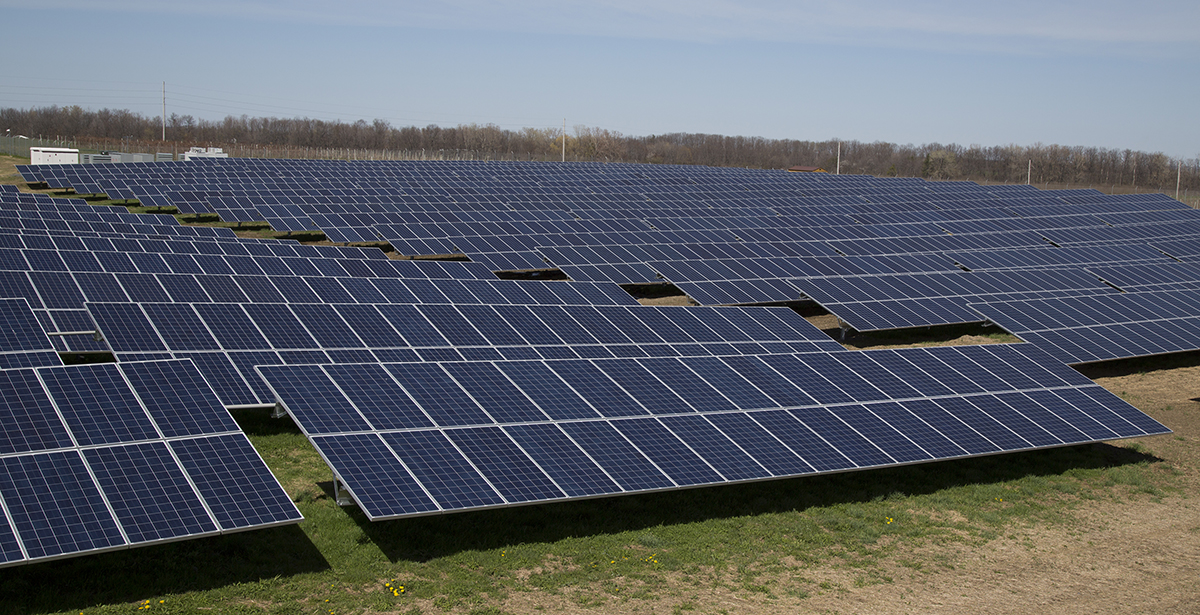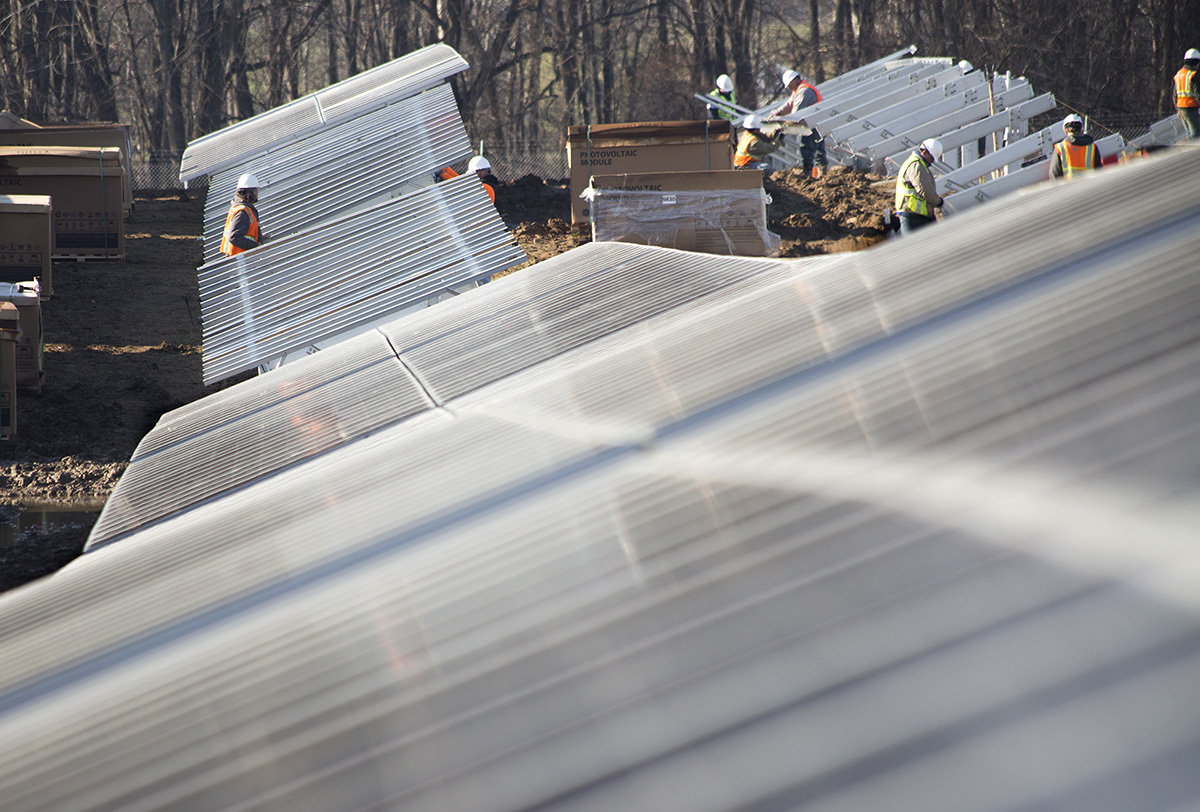Cornell's Sutton Road solar farm opens in Geneva
By Blaine Friedlander

Bring on the sunshine: Cornell University’s new Sutton Road Solar Farm, a 2-megawatt energy facility that will offset nearly 40 percent of the annual electricity demand at the New York State Agricultural Experiment Station (NYSAES) in Geneva, New York, became fully operational April 13.
“Our researchers are conducting basic and applied research to improve crops and make them more resilient to disease, drought and the worst effects of an uncertain climate as we chart a more sustainable agricultural future,” said Susan Brown, the Goichman Family Director of NYSAES. “Within our fruit and vegetable programs we’re studying the best way to harvest the sun, so it is only fitting that the energy powering our labs and greenhouses will do the same.”
Construction of the solar farm, a 17-acre facility featuring 9,120 photovoltaic panels located off Sutton Road in Seneca, New York, started last spring and is Cornell’s second megawatt-scale solar project. In September 2014, the university opened the Cornell Snyder Road Solar Farm with 6,778 photovoltaic panels on an 11-acre plot that adjoins the Tompkins County Regional Airport in Lansing, New York. Adding the new Geneva array to the Lansing facility’s output, the university will produce about 5,700 megawatt-hours of electricity annually.
“Moving from the natural gas-dominated heating and electric system to renewable energy is necessary to meet Cornell and New York state’s goal of decarbonizing energy,” said Bert Bland, associate vice president for energy and sustainability in the university’s Infrastructure, Properties and Planning division.

In September 2014, Gov. Andrew Cuomo announced NY-Sun awards for large solar electric projects that will increase the solar energy capacity in the state by more than 214 megawatts, a 68 percent increase over the amount of solar installed. The NY-Sun Initiative strove to expand the state’s renewable energy market to bring down the costs of the technology.
The New York State Energy Research and Development Authority administers the NY-Sun awards, and it contributed about one-third of the project’s capital cost, while private developer Distributed Sun and Building Energy Asset Management LLC will own and operate the Geneva array. Jeff Weiss ’79 is co-chairman and managing director at Distributed Sun. Cornell will purchase the solar farm’s electricity through an agreement with the company.
Utilizing solar power is just one of many actions the university is taking to reduce its carbon footprint. Cornell’s Senior Leader Climate Action Group has been charged with prioritizing initiatives that will help the university become carbon neutral. The group will submit recommendations and their associated costs by Sept. 1.
Media Contact
Get Cornell news delivered right to your inbox.
Subscribe